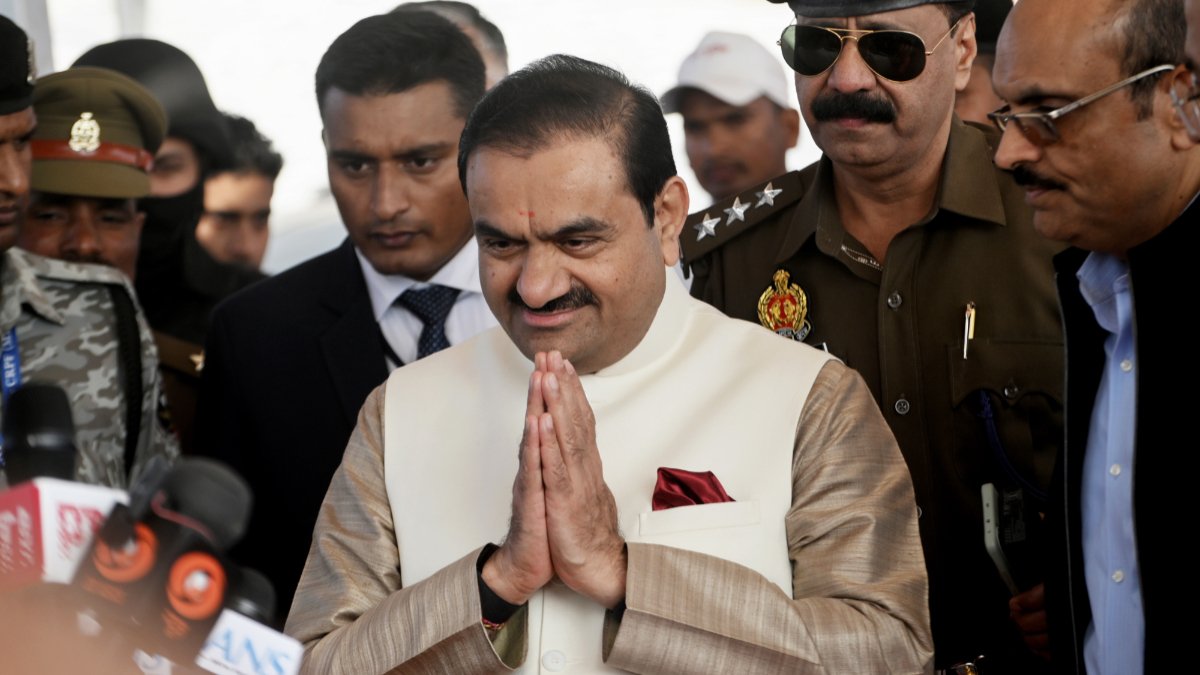![Indian billionaire Gautam Adani’s energy firm joins global power giants from China and France in a bid to support South Africa’s R440 billion electricity grid expansion, signaling growing investor confidence in Africa’s renewable energy future. [Indranil Aditya/Bloomberg via Getty Images]](https://ocdn.eu/pulscms/MDA_/16dd716282269272d13f76bf5ab4d195.jpg)
South Africa’s ambitious R440 billion ($24 billion) electricity transmission grid expansion has drawn the attention of global powerhouses, including Indian billionaire Gautam Adani’s energy firm, Chinese state-backed giants, and France’s EDF, signaling renewed global confidence in Africa’s clean energy infrastructure drive.
- South Africa’s R440 billion grid expansion program attracts global bidders including India’s Adani, China’s State Grid, and France’s EDF.
- The project aims to build 14,000 km of new power lines to support 59 GW of renewable energy capacity.
- The government aims to provide credit guarantees by 2026 to encourage private-sector investment in energy infrastructure.
- Adani’s bid marks India’s growing interest in Africa’s clean energy transformation.
The program, launched under the Independent Transmission Projects (ITP) initiative, seeks private partners to construct 14,000 kilometers of new power lines over the next 15 years.
The effort forms part of Pretoria’s long-term plan to add 34 gigawatts of wind and 25 gigawatts of solar capacity to the national grid.
“We are in the pre-qualification evaluation phase, which is expected to conclude by November,” said the Independent Power Producer Office, adding that 17 firms and consortia had submitted proposals.
Among them are Adani Power’s Middle East arm, China Southern Power Grid International, State Grid International Development Co., EDF Power Solutions, and South African firms SOLA Group and Mulilo Renewable Energy Ltd.
Adani, the world’s 27th richest man with an estimated $71 billion fortune, is betting on Africa’s next big energy leap. His conglomerate already runs vast energy networks in India and other emerging markets.
Though the group did not comment on its South African bid, industry observers see it as part of Adani’s broader strategy to expand into high-growth, energy-deficient regions.
“The grid expansion is the backbone of South Africa’s energy transition,” Electricity Minister Kgosientsho Ramokgopa said earlier this year, noting that the first phase, 1,164 kilometers of new transmission lines, will add 3,000 megawatts of capacity without major land disputes.
How South Africa plans to de-risk energy investments
The government also plans to offer credit guarantees by 2026 to de-risk private investment.
According to Deputy Finance Minister David Masondo, a R10 billion facility will initially back transmission projects before expanding to other infrastructure sectors, such as water.
The Development Bank of Southern Africa says similar private-led transmission investments have proven successful in countries such as India, Brazil, Peru, and Chile, a model South Africa hopes to replicate.
As Africa’s most industrialized economy looks to retire coal and ramp up renewables, global investors like Adani and EDF are positioning themselves for a stake in what could become the continent’s most transformative power infrastructure project.












